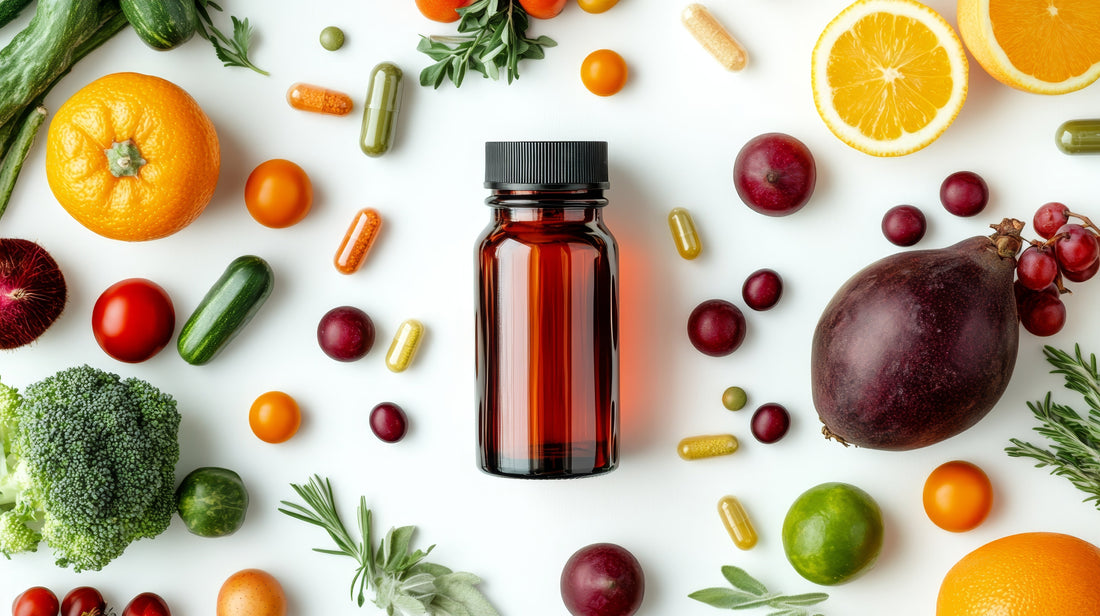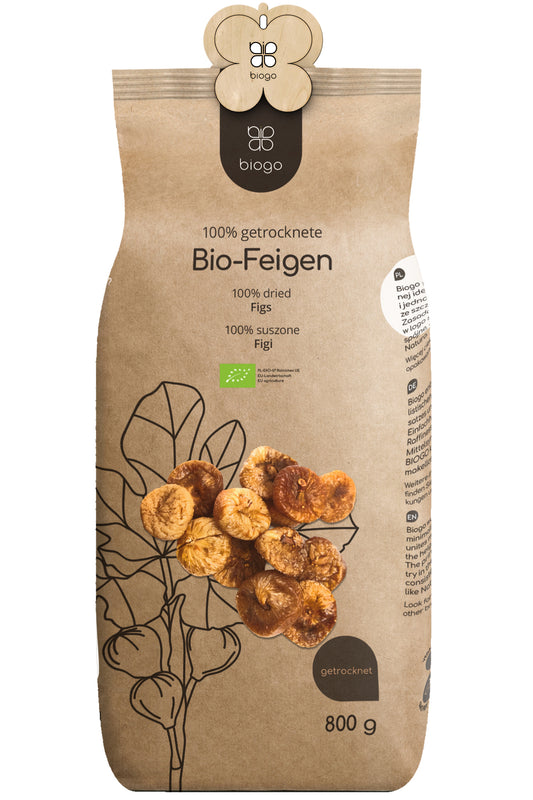Contents:
- Vitamin B12, iron, and vitamin D – the most common deficiencies to address
- Omega-3, zinc, and iodine – less obvious but equally important
- Protein and other ingredients – what else should you pay attention to?
A vegetarian diet can be a good choice – for health, ethical, and ecological reasons. More and more people are choosing to limit or completely avoid animal products to protect their bodies and the planet. However, to fully benefit from a plant-based diet, simply avoiding meat is not enough. Pay conscious attention to the quality of products, their variety, and the availability of important nutrients. Some of these are harder to access or better absorbed in a plant-based diet – therefore, a well-chosen supplementation is becoming increasingly important. What might vegetarians be missing? Which supplements are truly necessary and which should be considered depending on lifestyle and research findings? Here you will find a comprehensive overview of supplements for a vegetarian diet.
Vitamin B12, iron, and vitamin D – the most common deficiencies to address
Vitamin B12 is the absolute number one on the list of essential supplements for people who follow a vegetarian diet. Its deficiency can develop over a long period and cause nonspecific symptoms: chronic fatigue, reduced concentration, neurological problems, irritability, and even depression. In the long term, a B12 deficiency can lead to severe megaloblastic anemia. In nature, vitamin B12 is found almost exclusively in animal products – mainly in meat, fish, eggs, and dairy products. Even people who occasionally consume dairy or eggs often do not meet their needs, so supplementation is absolutely necessary. The forms methylcobalamin or cyanocobalamin are recommended in regular doses, preferably confirmed by vitamin B12 and homocysteine level tests.
Iron is another component that is hard to find in a plant-based diet. Although there are numerous plant sources – lentils, beans, pumpkin seeds, spinach, and tofu – the non-heme iron contained in them is unfortunately less absorbable by the body. Furthermore, its absorption is limited by typical components of a plant-based diet such as phytic acid. Iron deficiency leads to anemia, weakness, headaches, pale skin, or immune problems. Therefore, it is worth regularly testing ferritin levels and, if necessary, using iron supplements, preferably in combination with vitamin C, which increases absorption.
Vitamin D is also often too low – and not only in vegetarians. Its main source is skin synthesis under the influence of sunlight, which is practically impossible in Poland from October to March. Vitamin D-rich products (fatty fish, cod liver oil, eggs) are limited or completely avoided in a vegetarian diet. Therefore, vitamin D supplementation – preferably in the form of D3 (cholecalciferol) from lichens for vegans – is recommended for everyone, especially for people with low sun exposure.
Omega-3, zinc, and iodine – less obvious but equally important
Omega-3 fatty acids are an important component that influences brain function, heart function, skin condition, and anti-inflammatory processes. EPA and DHA are the biologically most active forms, and their main source is fatty sea fish – which is missing in a vegetarian diet. Plant products provide only ALA (e.g., from flaxseed, chia, walnuts), but the conversion to EPA and DHA in the human body is low and insufficient. Therefore, omega-3 supplements from microalgae are becoming increasingly popular – they are fully vegan and contain the corresponding fatty acids.
Zinc plays a role in over 300 enzymatic reactions – it affects the immune system, skin condition, wound healing, and even fertility. Unfortunately, its bioavailability in a plant-based diet is sometimes limited by the presence of antinutritional substances (phytates) that reduce its absorption. Although plant products contain zinc (e.g., pumpkin seeds, buckwheat, legumes), it is worth monitoring its level, especially during weakened immunity or deficiency symptoms – such as brittle nails, dry skin, or loss of appetite. Zinc supplementation should be chosen individually and not exceed the recommended daily dose.
Iodine, in turn, is responsible for the proper function of the thyroid gland. Its main sources – fish, seafood, and iodized salt – may be consumed only rarely by people who follow a plant-based diet, especially if they avoid table salt and do not consume seaweed. The latter (e.g., kelp, wakame, nori) are rich in iodine but contain it in very varying amounts, which can lead to both deficiency and excess. Therefore, iodine supplementation should be considered, preferably after consulting a doctor and checking TSH and FT4 levels.
Protein and other ingredients – what else should you pay attention to?
Although many believe that it is difficult to get enough protein on a vegetarian diet, this problem rarely occurs in practice – with a balanced diet. The key, however, lies in combining different protein sources to provide a complete set of essential amino acids. Legumes, tofu, tempeh, soy, quinoa, nuts, and seeds – all of these allow you to have a diet rich in complete protein. For people who are very physically active or want to build muscle mass, vegan protein supplements, e.g., based on peas, rice, or hemp, can be a good addition.
Calcium should also be considered, especially if dairy products are excluded. Plant sources include tofu, kale, broccoli, almonds, or calcium-fortified plant drinks. Magnesium, selenium, or B vitamins (except B12) usually pose no problem with a varied diet, but their levels should be regularly monitored – especially during increased stress, intense activity, or absorption disorders.
A vegetarian diet can be completely healthy and balanced but requires greater awareness and responsible use of supplements. It is not enough to avoid animal products – you must know what you replace them with and which ingredients you can supplement with supplements. The most important include: vitamin B12, vitamin D, iron (if necessary), zinc, iodine, and the omega-3 fatty acids EPA and DHA. Regular check-ups, consultations with a nutritionist, and choosing proven vegan supplements are the key to ensuring that a plant-based diet is not only ethical but also healthy – and serves health for many years.
THE PUBLISHER'S CHOICE
Almonds 1 kg BIOGO
- €11,69
€13,75- €11,69
- Unit price
- / per
Peeled sunflower seeds 1 kg BIOGO
- €3,04
€3,57- €3,04
- Unit price
- / per
Dried organic mango 400 g BIOGO
- €10,99
- €10,99
- Unit price
- / per
Dried White Mulberries 500 g ORGANIC
- €5,84
€6,87- €5,84
- Unit price
- / per
Popcorn (corn kernels) organic 1 kg BIOGO
- €5,84
- €5,84
- Unit price
- / per
Organic Ground Turmeric 500 g BIOGO
- €5,92
- €5,92
- Unit price
- / per
Milk thistle seeds 1 kg BIOGO
- €3,99
- €3,99
- Unit price
- / per
Dried organic figs 800 g BIOGO
- €30,12
- €30,12
- Unit price
- / per
Organic cashew nuts 1 kg BIOGO
- €19,99
- €19,99
- Unit price
- / per
Unpeeled buckwheat groats 1 kg BIOGO
- €2,81
€3,31- €2,81
- Unit price
- / per







































































































































